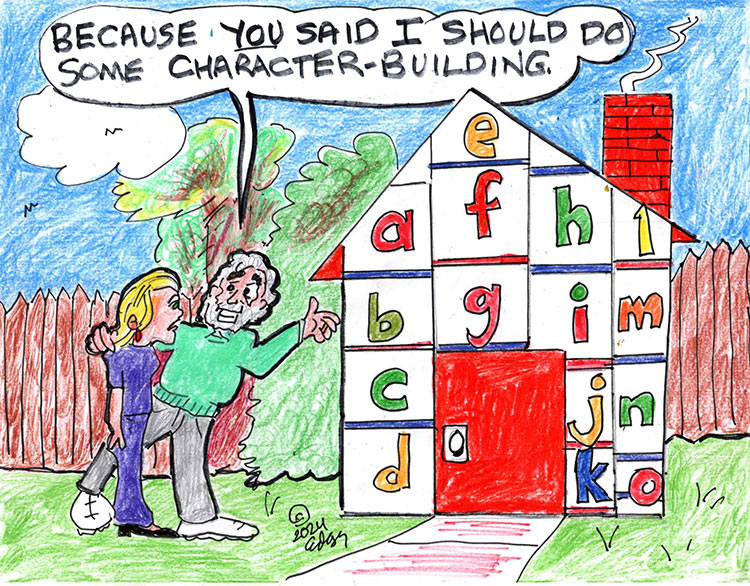Telling Your Kid “It’s Good for You” is A Fabulous Disincentive
Anyone for character building?
By Ed Goldman
One of the first wisecracks my mom remembered me making came when I was about four years old. She said I should eat my canned green beans because they’d “be good for” me. According to her, I responded, “That’s okay. I’ll eat ’em anyway.”
As any parent knows, an ill-advised way to get kids to appreciate anything is to tell them it’ll be good for them—like going to an art museum, sitting through an opera in its original Icelandic tongue or reading “Beowulf” in any tongue.
Letters to home
Other examples might include spending a few hours playing Monopoly while visiting with a deranged great-uncle, edging the front lawn with a scissors or playing a rugged sport for which the kid has no discernible aptitude, like ice hockey (especially if the kid has never learned to skate even on sidewalks. But enough about my deprived childhood).
Along with all the good-for-you’s is something much worse: the character-building experience. I can pretty much guarantee that as you’re going through one of these experiences (and often for years thereafter) you won’t find (or have found) that they built your character. The simple truth is that others decide what’s character-building for you.
In football, this is called a “hand-off.” In politics, it’s called “kicking the can down the road”—or, to save time, “politics.”
These experiences can be everything from busted relationships to having debt collectors pitch a tent on your doorstep; from breaking your arm because you fell off your chair while playing parchesi to coming down with a full-blown case of shingles as soon as your three-week-cruise ship reaches open sea.
It can range from your car being totaled while just sitting in front of your home to your oven exploding in flames because you accidentally roasted, alongside a stuffed capon, a formerly missing/now located Christmas-tree ornament.
In its monograph “10 Ways to Build Your Character Each and Every Day,” Yale University, which produces world leaders and reliable padlocks, cites among other activities: (a) becoming known as a promise-keeper; (b) being consistent in your dealings with others; (c) auditing your decisions; (d) engaging in “tough conversations with empathy,” and (e) growing meaningful relationships “through good and challenging times.”
Who could object to any of these wholesome behaviors? Well, I could. This is why you come here:
(a) If you’re known as a “promise keeper,” for example, it could mean you’re part of the evangelical men’s group of the same name— though not, thank goodness, someone who habitually marries or runs for office. These people are called “promise breakers.”
(b) If you’re “consistent in your dealings with others” does this mean, from a practical standpoint, that you treat a drunken Door Dash delivery person with the same respect you might accord a caring job counselor or pickpocket you just caught red-handed?
(c) How does one go about “auditing” their decisions, exactly? Do you look at the ones you’ve made over the past, say, quarter? Do you consider your actions by employing accrual accounting or cash basis accounting?
(d) Why do you even “engage in tough conversations with empathy”? What did empathy ever do to you? and finally,
(e) What’s so “good” about growing challenging relationships? I realize I may be distorting things a bit but I firmly believe, from personal experience, that doing so will neither be good for you nor build your character. Instead, eat some canned green beans.
Ed Goldman's column appears almost every Monday, Wednesday and Friday. A former daily columnist for the Sacramento Business Journal, as well as monthly columnist for Sacramento Magazine and Comstock’s Business Magazine, he’s the author of five books, two plays and one musical (so far).













